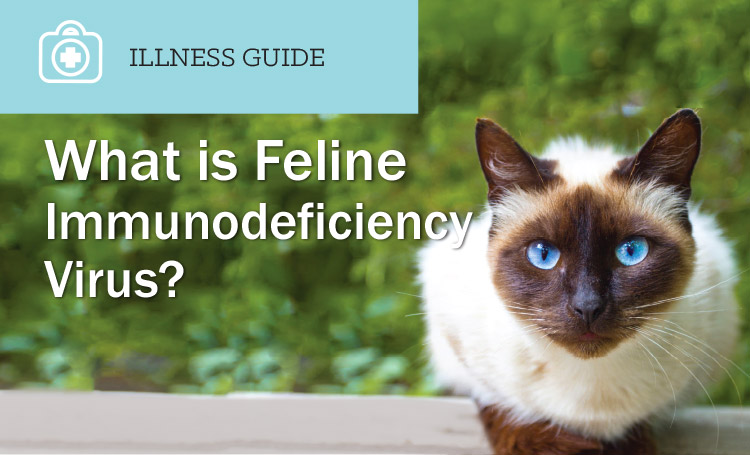What is Feline Immunodeficiency Virus (FIV)?

Feline immunodeficiency virus (FIV) was discovered in the late 1980ís after researchers began searching for a virus in animals that was similar to the HIV virus in humans. We now know that both viruses are part of the Lentivirus family of retroviruses. These viruses are species specific, infect an individual for life, and cause a slow, progressive disease. People cannot contract FIV from a cat, just as cats cannot contact HIV from a human.
How is FIV Spread?
FIV is present in the blood, saliva, and cerebrospinal fluid of infected cats. The virus is dependent on its host and cannot live outside the cat. The most common mode of transmission is through the bite wounds of infected cats. Casual contact is a less likely method of transmission, and infected queens can pass the virus to their offspring. Unneutered male cats are the most commonly infected. These cats tend to be territorial and are the most likely to be bitten by a carrier of FIV. House cats that never come into contact with strays are the least likely to contract the virus or to develop the disease.
What Are the Signs of FIV?
It may take years after initial exposure to the virus for clinical signs to develop. About four to six weeks after exposure, the infected cat may develop swollen lymph nodes and a decline in their white blood cell count. Some cats will develop fever, diarrhea, and anemia in the early stages of the disease. Other symptoms include gingivitis, respiratory infections, eye diseases, neurological problems, and general poor health. These symptoms are the result of a suppressed immune system caused by FIV, rather than being a direct result of the virus. This suppression is caused by the destruction of a type of white blood cell called the T helper cell.

How Do I Know If My Cat Has FIV?
The diagnosis of FIV needs to be made by your veterinarian and may be assessed by regular blood work. This blood test is used to determine if the animal is producing antibodies to the FIV virus. If antibodies are present, it means the cat has indeed been exposed to the virus. Your veterinarian may recommend testing any new cat that is being brought into your household. Kittens less than six months of age may test either false negative, or false positive. If they are incubating the virus, they may not have enough antibodies present to give an accurate positive test result. False positives occur when a queen passes antibodies to her kittens through milk while nursing. These kittens may also contract the virus this way, so kittens who test positive should be retested at six months of age. Your veterinarian is the best person to advise you when to test which cats.
How is FIV Treated?
There is currently no known cure for FIV, and all treatments for the disease are focused on preventing secondary effects of the virus. If your cat is not infected, you may want to talk to your veterinarian about the possibility of having your cat vaccinated. It is also beneficial to keep your cat indoors whenever possible and to to otherwise limit his interactions with other cats that may be infected.
We hope that you find the information included in this article helpful in your quest to keep your cat healthy and safe from harm.
